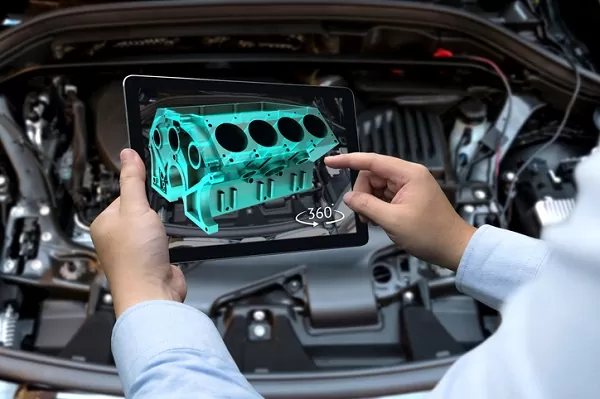There are a lot of myths and misconceptions about towing cars. Does towing a car add miles on the odometer? How does a car’s odometer work, anyway? What are the differences between a Mechanical Odometer and an Electrical Odometer? In this blog post, we will aim to answer all of these questions! We’ll also take a look at some of the ways you can tow a car, and why you might need to do so in the first place.
Lets Take A Look!
What Are Some Reasons You Might Need To Tow A Car?
There are actually a few different reasons why you might need to tow a car. One reason is if the car has been in an accident and is no longer driveable. In this case, you’ll need to have the car towed to a repair shop or junkyard.
Another reason you might need to tow a car is if it has broken down and is in need of repair. In this case, you’ll need to have the car towed to a mechanic.
Finally, you might need to tow a car if it needs to be relocated for some reason – like if you’re moving cross-country and can’t take your car with you on the plane. Whatever the reason, there are a few different ways to go about it.
What Are The Different Methods Of Towing?
There are three primary methods for towing a car: flat towing, dolly towing, and trailer towing. Let’s take a look at each method in turn.
Flat Towing
Flat towing is the most common method of towing a car. This is when a car is towed behind another vehicle, typically using a tow bar. The advantage of flat towing is that it’s relatively simple and doesn’t require any special equipment. The downside is that it can be hard on your car’s transmission and tires.
Dolly Towing
Dolly towing is the second most common method of towing a car. In this method, the front wheels of the car are on a tow dolly and the back wheels are on the ground. The advantage of dolly towing is that it is less likely to damage your car’s transmission than flat towing. However, there are some disadvantages. First, dolly towing can be difficult and expensive if you don’t have the right equipment. Second, dolly towing puts extra wear and tear on your car’s tires. Finally, dolly towing can be dangerous if you don’t know what you’re doing.
Trailer Towing
Trailer towing is the third most common method of towing a car. In this method, the car is attached to a trailer and both the front and back wheels are off the ground. The advantage of trailer towing is that it is the safest method of towing a car however it can be expensive if you don’t have access to your own trailer.
Does Towing A Car Add Miles On The Odometer?
There are a few factors that play into this answer. The first is the type of car you have. If your car has an electrical odometer, then towing it behind another vehicle will not add any miles onto the odometer reading. This is because the distance travelled is calculated by sensors on the wheels and not by actual physical movement of gears like in a mechanical odometer.
However, if your car does have a mechanical odometer, then towing it behind another vehicle WILL add miles onto the reading because the gears inside the odometer are physically turning as your car moves down the road.
How Do I Know If My Car Has An Electrical Or Mechanical Odometer?
The best way to tell the difference between an electrical and a mechanical odometer is by the movement of the needle. If the needle moves smoothly, it’s likely electrical. If the needle jumps or ticks, it’s most likely mechanical. Another way to tell is by the power source. An electrical odometer will have a small battery icon next to the reading, while a mechanical odometer will not. If you’re still unsure, your best bet is to take it to a mechanic or dealership and have them take a look.
The second factor that plays into this answer is how you are actually towing your car.
Dolly Towing
If you are towing a car with a dolly, the car’s odometer will not be affected. The emergency brakes are integrated into the rear wheels, while the odometer sensors are integrated into the front suspension. This means that the front wheels of the vehicle are stationary on the dolly, and no mileage is being recorded or accumulated. If your car is rear-wheel drive, then yes, it will accumulate mileage as the axle and tires are moving. ( Assuming it has a mechanical odometer)
If your car has an electrical odometer , no mileage will be recorded.
Flat Towing
If you have an older vehicle with a mechanical odometer, flat towing will indeed put miles on your odometer. If your car has an electric odometer that requires the vehicle’s ignition to be turned on , no mileage will be recorded assuming your car is powered off and in neutral.
However, if the wheels of the towed car are turning with the ignition powered on, the towed vehicle will put miles on the odometer.
Trailer Towing
In this scenario, no mileage will ever be recorded on car being towed’s odometer, as none of the wheels are turning or touching the ground.
Does Towing Cause Wear And Tear On The Vehicle Being Towed?
The answer to whether or not towing a car causes wear and tear damage is a bit complicated. There are many factors that contribute to how much wear and tear occurs while towing a car. The type of car being towed, the type of transmission, the way the car is hitched up to the tow truck, and even the road conditions can all play a role in how much damage is done.
That being said, there are some risks associated with towing a car that could cause damage. If the car isn’t hitched up properly, it could come loose and cause an accident. If the tow truck is going too fast, it could put stress on the car being towed and cause damage. And if the roads are rough, it could jostle the car and cause some wear and tear.
Generally speaking, though, towing a car shouldn’t cause too much damage if it’s done properly. There are some risks involved, but as long as you’re careful, you should be able to tow your car without doing any major damage.
Towing A Manual Vs An Automatic Car?
One last thing to keep in mind is that towing a manual car is different from towing an automatic car. Automatic cars should never be towed with anything other than a flatbed tow truck. Towing an automatic car any other way could damage the transmission. Manual cars can be towed with either a flatbed or a dolly, but it’s generally recommended that you use a dolly if possible to avoid damaging the clutch.
So, to answer the question, yes, there is some risk involved in towing a car. But as long as you’re careful and know what you’re doing, it shouldn’t be a problem. Just be sure to use the right type of tow truck for your car, and don’t go too fast or rough with the roads. And if you have any doubts, it’s always best to consult a professional before attempting to tow your car yourself. Better safe than sorry!










